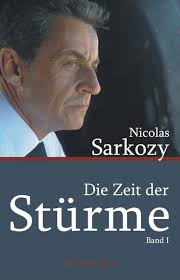
Introduction
Nicolas Sarkozy, the former President of France, remains a significant figure in both French and international politics. His tenure was marked by economic reforms, foreign policy dynamism, and a controversial approach to domestic issues. Understanding Sarkozy’s political journey is essential not only to grasp modern France’s socio-political landscape but also to evaluate the shifting dynamics within European politics.
Early Life and Political Rise
Nicolas Sarkozy was born on January 28, 1955, in Paris, France. He entered politics in the 1970s and quickly climbed the ranks within the conservative party, Union for a Popular Movement (UMP), now known as The Republicans. His ability to connect with voters, particularly during times of economic distress, helped him secure a strong following. In 2007, Sarkozy won the presidential election, becoming France’s youngest president at the age of 52.
Presidency and Key Policies
Sarkozy’s presidency was significant for several reasons. He introduced various reforms aimed at revitalizing the French economy, including tax cuts and labor market reforms. His administration was also characterized by a tough stance on crime and immigration, appealing to conservative voters. Sarkozy’s foreign policy was marked by a proactive approach, notably his involvement in the 2011 military intervention in Libya and efforts to strengthen Franco-German relations within the European Union.
Controversies and Legal Challenges
Despite his accomplishments, Sarkozy’s presidency was not without controversy. He faced criticism for his handling of social issues and was often seen as promoting inequality through his economic policies. After leaving office in 2012, Sarkozy’s legal troubles began to unfold. He was implicated in multiple corruption scandals, leading to significant legal battles. In September 2021, he was sentenced to three years in prison, two of which were suspended, for corruption and influence peddling, a landmark ruling that has raised debates on political accountability in France.
Conclusion
Nicolas Sarkozy’s political journey illustrates the complexities of leadership in modern democracies. His influence on French politics continues to provoke discussion and analysis, especially in light of ongoing legal challenges and public opinion. Moving forward, Sarkozy’s story serves as a reminder of the volatile intersection between power, politics, and public perception. As France approaches the next election cycle, the legacy of Sarkozy’s policies and controversies will continue to shape the political discourse.



